24 Hour Economy already exists in Ghana and is not a new policy
The coming of the 24-hour Economy?
A 24-hour economy refers to an economic system where businesses and activities operate around the clock, 24 hours a day. This concept has gained prominence in modern society due to increased globalization, technological advancements, and changing consumer behaviour.
The 24-hour economy extends beyond traditional working hours, allowing for continuous productivity and accessibility. This paradigm shift not only fosters economic dynamism but also addresses the changing lifestyles and demands of a globalized world (Liu,2023).
Mehta et al, (2023) posited that key aspects of the 24-hour economy include globalization and time zones, where there is interconnectedness in the global economy. This means that businesses operate in different time zones. To facilitate seamless communication and transactions, many industries, especially in finance and technology, need to function 24/7. For instance, the rise of digital technologies and automation has enabled businesses to operate more efficiently outside regular working hours. Online platforms, e-commerce, and automated processes contribute to the continuous functioning of the economy.
Glorieux et al, (2008) also indicated that generally speaking, the 24-hour society is believed to be driven by exogenous or macro-level factors, supported by (Presser, 2005). Flexibilization and destandardization have often been understood as ways to accommodate changes in technology and the global market (Garhammer, 1995).
The spread of information and communication technologies (ICT), along with a globalizing economy, have made it necessary for international companies to run 24 hours a day to respond and deliver (just) in time, to compete with different time zones, or to stay in contact with branch offices in different locations all over the world.
To maximize profits on capital investments, employers will seek to extend operating times. For employers, the wage costs of shift work are lower than overtime payments to day workers, as there are strict rules on how to compensate workers for overtime in developed economies (Van Doorn,2023).
Demand Supply Conditions and the Service Market An element in the demand for more flexible work-time arrangements is the noticeable growth of the service sector, which in the last few decades has become the largest segment of many economies (Presser, 2004). Due to the preponderance of service work, the temporal boundaries instituted by industrial society are being questioned. Consequently, there is increasing interest in extended shopping and service hours.
The remarkable expansion of the recreation and entertainment industries has also accelerated the need for paid evening, night-time, and weekend work. The desynchronization of social time implies that free time for some people becomes the work time of others (Lallement, 1995). This macroeconomic factor favouring a 24-hour society is therefore also related to changes in the supply and demand side of the labour market. The growth of the service economy goes hand in hand with women’s participation in the labour market, and these trends are mutually reinforcing.
While women are easily employable within the service economy, their engagement in paid labour increases the demand for services and commodities, since part of what was formerly produced at home is purchased instead (Glorieux et al.,2008).
Read the full post below:
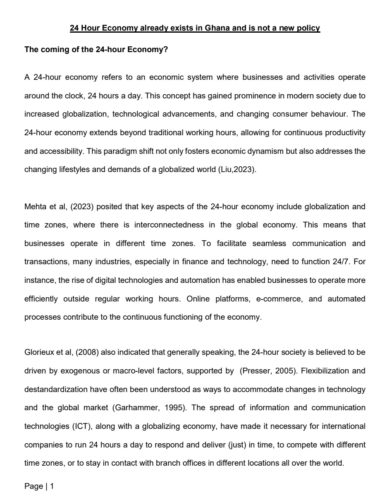
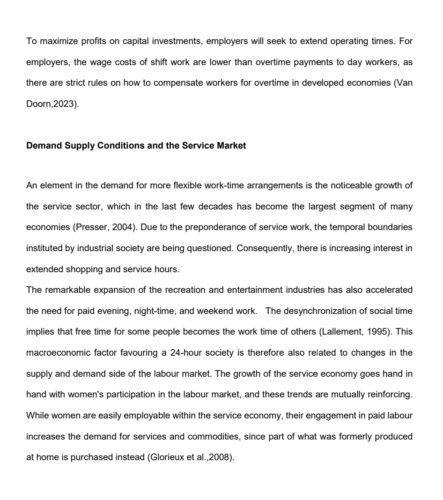
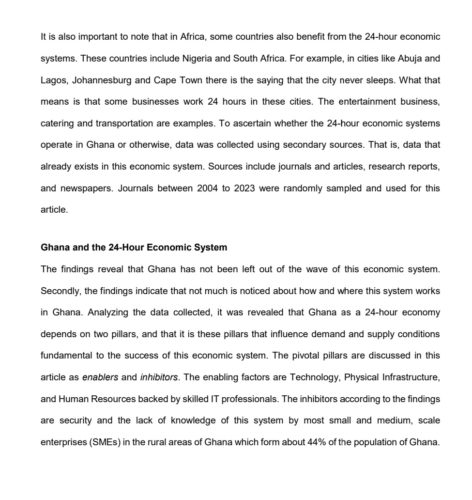
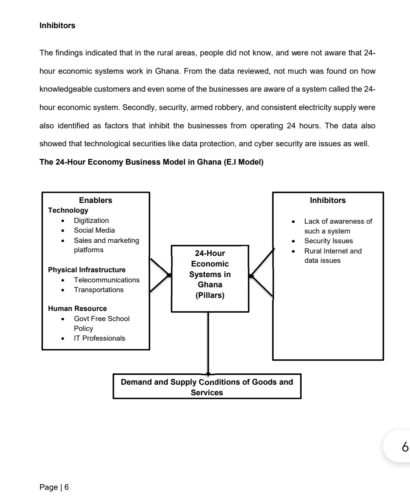
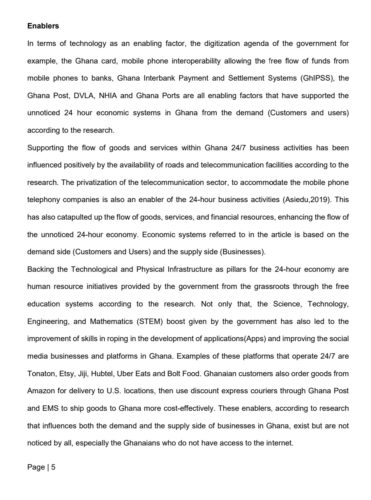
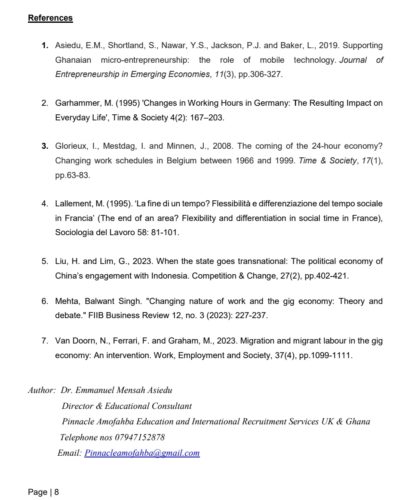
Source: Ghanatodayonline.com
 Ghanatodayonline.com News, Politics, Health, Education & More
Ghanatodayonline.com News, Politics, Health, Education & More




